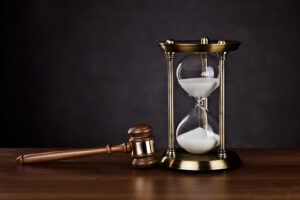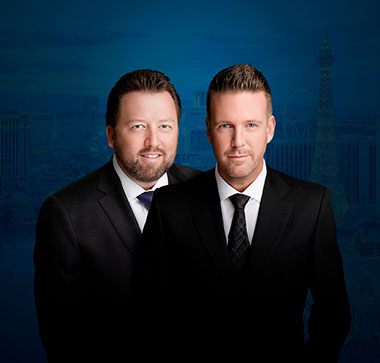Wrongful death is a type of lawsuit that family members of the deceased can file if their loved one died because of someone else’s negligence, wrongful act, or reckless behavior. If the deceased person could have brought a personal injury lawsuit had they lived, people with certain relationships to the deceased can instead bring a wrongful death lawsuit in the deceased’s stead.
If a loved one has died, the statute of limitations dictates your deadline to file a wrongful death lawsuit. After that deadline, the court will not permit the lawsuit. All cases are subject to a statute of limitations, but the deadline varies according to the type of case and the State in which it occurred.
In Nevada, the statute of limitations for wrongful death is two years from the date of death.
In some cases, the deceased may not have died immediately. Surviving family members should know that the statute of limitations for wrongful death starts on the date of death (not the date of injury), as long as the injury was ultimately the cause of death. In other words, if your loved one was severely injured in a car crash on June 14, 2019 and died of their injuries on June 27, 2019, the relevant date for statute of limitations purposes is June 27, 2019.
Why Survivors Should Discuss a Wrongful Death With an Attorney as Soon as Possible

Wrongful death law realizes that negligent parties owe the deceased and their loved ones for their losses. These losses include economic damages, such as bills for medical expenses and funeral and burial costs. Families may be hard-pressed to pay these costly charges—and frankly, they shouldn’t have to if the death was someone’s fault. Families may also have lost the wages of a breadwinner and find themselves in difficult economic straits because of it.
The law recognizes that negligent parties should pay for these losses. Wrongful death cases can also recover economic compensation for emotional losses related to the death, such as loss of companionship and emotional support.
While the law recognizes survivors’ rights to seek compensation, it also requires them to provide evidence of their losses and the at-fault party’s negligence. Both insurance companies and defendants can contest a wrongful death claim by (for example) claiming that the deceased or some other party was responsible.
For instance, if your loved one died in a car accident, the responsible party can try to blame another driver, your loved one, or someone else. Evidence can become lost or compromised over time, so the sooner you start working with a lawyer, the more likely they are to find and preserve evidence to support your case.
Types of Evidence
To understand why evidence might disappear over time, we only have to consider the types of evidence that can be important in a wrongful death suit.
Evidence often includes:
- A crash report or other law enforcement report of an incident;
- Eyewitness testimony;
- Medical records, such as records of emergency room treatment, doctor’s visits, diagnoses, types of treatment, and more;
- Pictures and videos, such as:
- Surveillance camera footage;
- Smartphone images from the scene of the accident or injury-causing event;
- Pictures of injuries, showing nature and extent of injuries;
- Forensic and other investigative reports, such as skid or yaw marks at the scene;
- News of the accident; and
- Weather and traffic conditions on the date of the incident.
Nearly all of these types of evidence can become lost or deleted, or are subject to deterioration. Surveillance camera footage is often overwritten. Eyewitness memories fade. Medical records are shipped to storage and can become lost.
If some time has elapsed, evidence may no longer exist. If it does exist, the responsible party’s attorney may successfully argue to throw it out, because the elapsed time makes it unreliable. This can happen with eyewitness testimony, for example.
The lack of evidence, or poor or compromised evidence, can mean that surviving loved ones do not receive the justice they deserve.
Discussing Evidence and Your Case With a Lawyer
To avoid issues with evidence and the statute of limitations, discuss a potential wrongful death case with a lawyer as soon as possible.

Wrongful death lawyers generally offer a free initial consultation to discuss your case. There is no obligation with this initial consultation; both you and your lawyer need to mutually agree to work together for a case to proceed. You need to feel comfortable with the attorney and decide that you want to move forward with a case.
For the lawyer’s part, they need to feel reasonably sure that your case will be successful. Wrongful death attorneys generally don’t charge clients for their services directly. They work on a contingency fee basis. If your case is successful, the lawyer’s fee comes out of the claim payout or award as a percentage. If the case proves unsuccessful, you generally do not owe anything. This should set your mind at ease about the cost of a lawyer. It also means that the free initial consultation needs to provide enough information to the lawyer about the case.
Come prepared to discuss what happened to your loved one. How were they hurt or harmed? What was the cause of death? What is the effect on you and your family? Who or what do you believe bears responsibility for the death?
If you have any evidence, it’s prudent to bring it, including law enforcement reports and records, medical records, images such as pictures and videos, and the names of eyewitnesses. In the event it was a motor vehicle accident, bring copies of insurance and drivers’ licenses of the parties involved. Any evidence that may have affected the circumstance of the event is critical to preserve.
For more information, contact a wrongful death attorney licensed in the State of where the tragedy occurred for more information.


